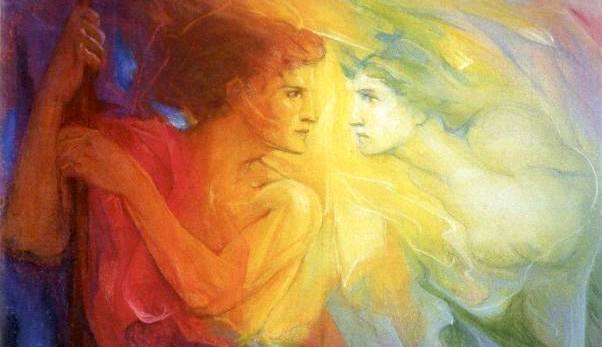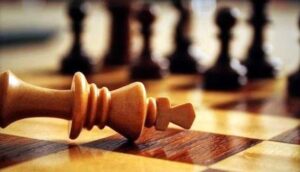More than four decades after the physical death of Massimo Scaligero (1980) and more than thirty years after that of Bianca Maria Scabelloni (1990), known to everyone as Mimma – two masters of spiritual science in Italy – I think it is fair to ask what the visible fruits of their teachings are today.
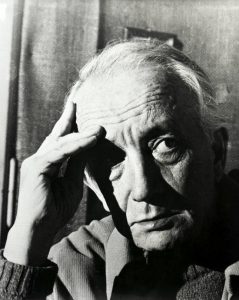
The invisible fruits are of course not included in this issue since identifying them would obviously require spiritual vision, which is not accessible to everyone.
If we want to identify two peculiar characteristics of Massimo and Mimma’s work, we can find them in the elements of freedom and brotherhood.
Freedom because these two extraordinary figures not only refused to found any external organizations of any kind but they took into account the freedom of every person who turned to them, respecting their thoughts and convictions.
Brotherhood because they – avoiding all outwardness – always defined themselves as “friends” and never “teachers” – despite having had spiritual experiences of the highest level – and having dedicated their lives to the service of others.
Day after day, year after year, without stopping or ever holding back.
With my memory and heart turned to the memory of what they have conveyed to us – and above all what they were as human beings and as Masters – I must say that it is increasingly painful and disheartening to contemplate the spectacle these days of many of the circles and groups inspired by them.
From those who proclaim the exclusivity of their interpretation – of course the only ‘true’ one – of the Masters’ thoughts, to those who use every kind of spiritual community – real or virtual – purely in order to launch themselves into invective – and so on up to those who these spiritual communities underestimate – even though they were tirelessly recommended by Massimo and Mimma – and who prefer to remain in the comfort of their own self-referencing.
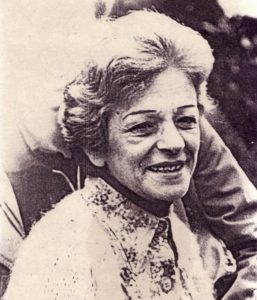
We see, in fact, circles of disciples – of the Same Masters – pitting themselves against ‘factions’, as if armed against each other.
Even particular aspects such as, for example, the precedence or otherwise of thinking over feeling and willing (or vice versa) become reasons for criticism, discord, and confrontation.
Even the way in which group work is done, or how to do exercises, sometimes turns into an opportunity for quarrelling and condemnation.
And everyone is invariably convinced that they are right; even, that one’s position is the only legitimate one, while the others are traitors, or, at best, opponents to be silenced.
This ignores the fundamental fact that not only are others not adversaries, but, if they work in the same direction as me, whilst seeing some things differently from me, they should not be criticized but be listened to and understood.
A companion on the path can certainly have a different opinion from mine because we are human beings with different talents and temperaments, but basically, we belong to the same family, because the other
… is the left leg and I am the right…
as Judith von Halle correctly stigmatizes.

In fact, others, through their differences, must be enriching for me as they give me an opportunity to understand ways of thinking/feeling/willing, and give me the opportunity to welcome thoughts, considerations, judgments that – because of my specific nature – I am not able to arrive at.
It is a colossal mistake to believe that someone who has a different point of view from our own is an opponent.
According to Rudolf Steiner:
Listening to another person with open-mindedness and trust should arise as a necessary effect from my spiritual pathway; connecting with him or her and acting – inwardly and outwardly – with them should not arise from personal interest or from any common denominator of belonging to a party, religion etc. but lay the basis for founding an authentic community (G.A. 127).
Additionally, what is particularly striking today in our circles is the lack of empathy and balance between fellow companions on the path.
It is enough to reread the contents of “So a Spiritual Association Can Live” by Massimo Scaligero to understand how empathy and balance are irreplaceable components of any association with spiritual purposes.
And associating today itself has a fundamental importance based on everyone’s shared responsibility, with regard to the particular historical events we are experiencing, and the enormous accountability of spiritual communities.
The resulting picture is depressing and we cannot – particularly at a time like this of dramatic gravity for the whole of mankind – fail to ask ourselves questions.
Why have we reached this point?
What went wrong? What have we overlooked along the way?
The first thing I would like to dwell upon is that while the exercises given by Rudolf Steiner as the basis for balanced inner growth – concentration, meditation, pure contemplation and pure action – have been carried out by many in a constant and rigorous manner, the three exercises of feeling have been dramatically neglected: equanimity, positivity, and open-mindedness.
Concentration and meditation, willpower (pure action), equanimity, positivity, open-mindedness are inner operations that flow into the so-called magical balance. Rudolf Steiner says, and I quote, that nobody can think of progress unless they fulfil these conditions.
Question: have we made progress then?
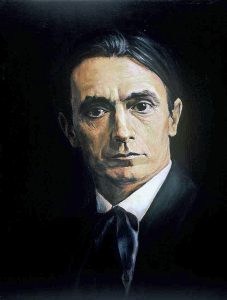
Steiner also adds that all exercises of meditation, concentration and more are worthless and also somewhat harmful if life does not stick to the meaning of these requirements, that is, the meaning of the five exercises as a whole.
At this point I think it is important to note that Rudolf Steiner indicated as necessary for undertaking the scientific-spiritual path, one exercise on thinking, one on willing, and three on feeling.
This cannot be by chance.
The balanced development of the soul requires one step forward in knowledge and three steps in morality.
Because it is in the soul that we are weaker, in our feelings, in our ability to bring spiritual science into life, into our encounters, into our relationships with others.
Yet there is no shortage of examples – for example in the book Knowledge of Higher Worlds and How to Obtain it (or Initiation) – in which the disciple is warned against the predominance of one of the three forces of the soul – thinking, feeling, or willing – over the others. From this may arise imbalances whose gravity is directly proportional to the path travelled and thus to the level of evolution reached.
The prevalence of willing over thinking and feeling can lead to hyperactivity and even violence;
The prevalence of feeling over thinking and willing can lead to mysticism and inner weakness;
The prevalence of thinking over the other two risks enveloping the disciple in a cold contemplative force unable to transform into moral feelings and actions towards others.
Scaligero writes in The Logos and the New Mysteries that:
The Way of Thinking itself risks becoming a way of pride or superlative selfishness, if it does not lead to self-consecration to the Divine and unlimited love for others: the discovery itself of Isis-Sophia.
That is why, the three exercises – those that are sometimes called almost carelessly the “other exercises” almost as if they were of B grade – have, especially today, enormous importance that is often not understood or is underestimated.
In them are summarized all the exercises of the book Knowledge of Higher Worlds and How to Obtain it (or Initiation); because equanimity, positivity and open-mindedness in reality include all the teachings of the Gospels.
Therefore, perhaps we need to better understand what the real implications and applications of these exercises are.
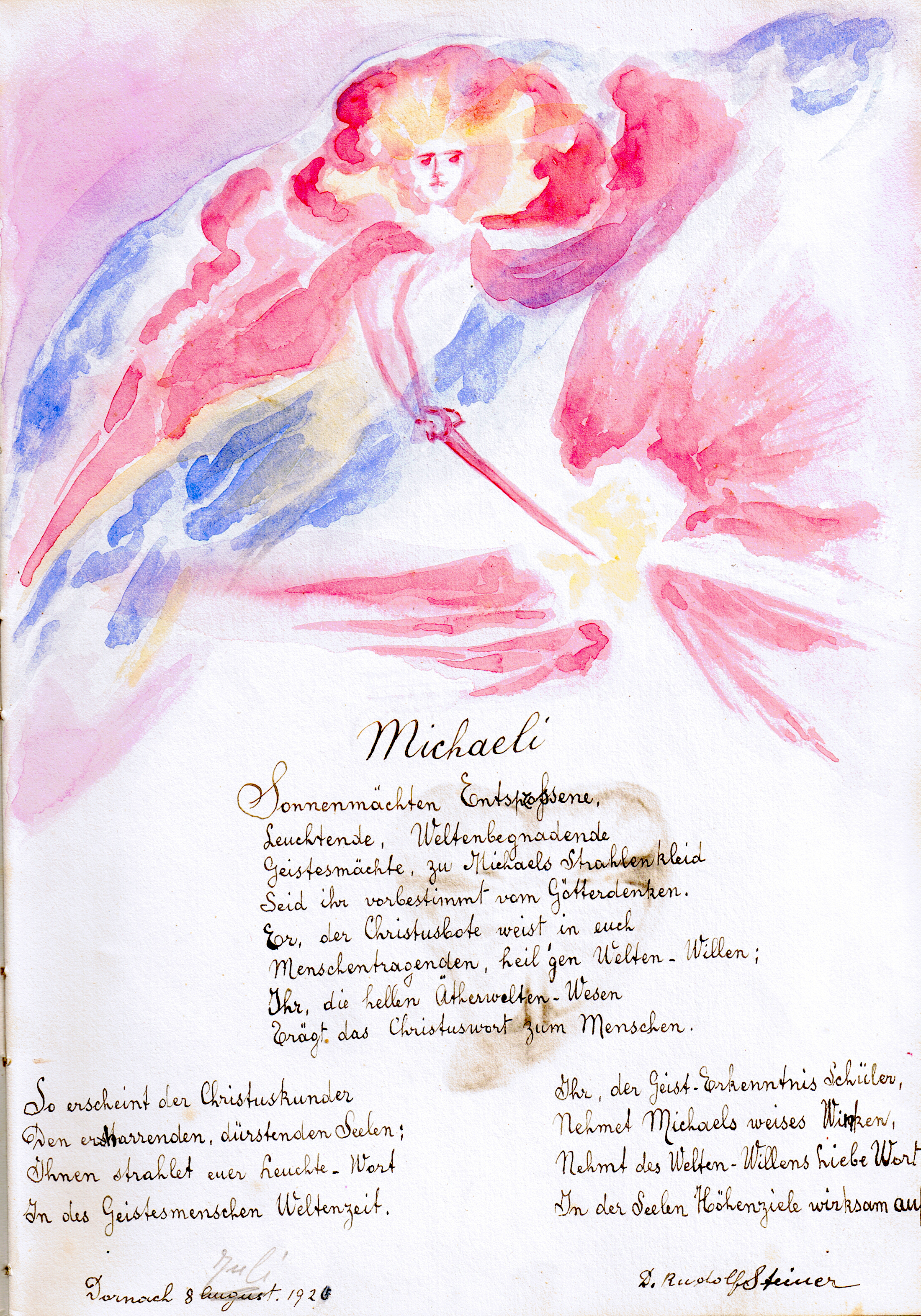
EQUANIMITY
Equanimity is, as we know, learning not to let ourselves go during the oscillations between pleasure and pain, joy and suffering,
…so that no suffering crushes us, that no experience lived drags us towards excessive excitement or anger, that no expectation fills us with fear and anguish, that no situation causes us to lose our balance. The disciple – writes Rudolf Steiner in Theosophy – must develop in himself the faculty of behaving with regard to all things and men according to their character, respecting the value, the importance of each one.
That seems to me to be a fundamental point.
“… behaving with regard to all things and men according to their character, respecting the value, he importance of each one.”
Regardless of sympathy and antipathy, it is necessary to develop the faculty of
“not immediately following any feeling of sympathy or antipathy with a judgment or action” (Theosophy).
And this attitude of the soul, as it is easy to guess, has a virtually unlimited applicability to our life; in social relations, in the family, in our spiritual community, in every couple.
If this work on the soul is to lead us to a balance of feeling – normally inclined to move seamlessly from joy to pain, from enthusiasm to depression, it immediately stands out that in the great test of humanity that we are experiencing today – the application of equanimity should help us to overcome the fear that paralyzes our feelings by raising in us that Michael-like courage that is the goal of mankind in this age.
It is no coincidence that fear has spread in this age of courage.
POSITIVITY
Positivity, then, is not just trying to find in all beings, in all things, in all experiences, what is good, and beautiful contained in them, but also “refraining from criticism”.
This exercise must teach us to listen to others when they speak.
A disciple – Steiner writes in Knowledge of Higher Worlds and How to Obtain it (or Initiation) – must get used, when listening, to completely silence his/her own inner world. The disciple must silence any approval or opposition. In parallel with every occult observation about human nature, self-education must lead to unconditional appreciation of the full value of each individual; what resides in every human must be considered by us – even in our thoughts and feelings – as sacred and untouchable. Everything that is human, even if we think of it as a memory, must fill us with a sense of deep veneration.
It is therefore an exercise in trust in another human being , the will to believe that the other, who may have made a mistake – as we continually make mistakes – can always notice the mistake and redeem him- or herself.
It is therefore an attitude that implies acceptance, an absence of judgment, and forgiveness.
If we want to apply it to the present time, our task should be not just to listen deeply to others by looking at their portion of light but also seeking the spiritual element that underpins external events, however painful they may be and that concern us as stages in our own evolution.
This is a task that cannot be avoided by spiritual communities.
Seeking out the spiritual meaning of the present monstrous Agenda.
OPEN-MINDEDNESS
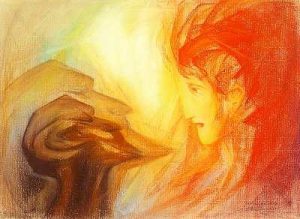
Finally, we have open-mindedness, that is, the ability of
“cultivating in itself the feeling of unprejudiced openness when facing every new experience”.
Being ready at all times to agree to have a new experience.
A fundamental application of this exercise is refraining from any pre-judgment on the people around us and also on the events that fate brings to meet us.
“Whoever wants to undertake – Steiner writes in Theosophy – the “path” of higher knowledge must practice the power at any time to switch oneself out with all our prejudices. To the extent we switch ourselves out, things can pour into us.”
Applied at the present time this attitude should lead us not to exclude any possible interpretation of what is happening in the world pushing us to deepen our knowledge of events using what Steiner called
“the enthusiasm of attention”.
So, to sum up, we have:
– Equanimity: behaving with regard to things and people according to their characters, respecting the value, and the importance of each one. Developing courage.
– Positivity: “refraining from criticism” and learning to truly listen to others, seeking the spiritual-evolutionary meaning of events.
– Open-mindedness: refraining from any pre-judgment on the people around us and not stopping at the first interpretation of external events but delving into facts and seeking their true meaning.
Now it is clear that these indications – if applied – would be able to completely transform our lives starting with the people closest to us, our so-called “neighbours” , which is something that, if we look around us, is far from being realized.
But there is more.
Applying these exercises in life is our only defence against something that is assaulting us on every side today: fear and the feeling of losing ourselves.
In a few conversations several decades ago Mimma advanced some aspects of the future which have presented themselves today;
…the exercises, our meetings and even Eurhythmy, if they do not become a practical application as regards life, that is always derived from self-knowledge but never a law – nowadays become a destructive act towards the outside”. So, not only does they bring no use to anything and anyone, but they begin to become harmful, because the times we are going through and those you will go through are really a new age. Here we encounter our hidden co-responsibility for what we have sown and what is happening in the world.
We are therefore confronted with a fundamental issue: the responsibility of spiritual communities for what we are going through in this historical time.
This involves forced fragmentation, to which we must respond with work as a community for the spirit.
Only working – Mimma said – through friendship with the Logos is what frees us from fear, because we are placed between two polarities, two trials: fear and a sense of losing ourselves.
And never as in this historical moment has this caveat been more relevant, at least in the context of our lives.
Fear – conscious and unconscious – comes in three dimensions:
– physical fear,
– psychic-soul fear, and
– spiritual fear
Physical Fear:
We see it on a daily basis. It is induced and amplified by the media, and it holds almost all the world’s population in its grasp. It produces an out and out paralysis of our forces of reaction, making us more vulnerable to external pathogens. This is a condition of fear that not only grasps the physical, but from the body reverberates on into the soul and, thus interferes in our spiritual work.
Psychic-soul Fear:
We fear we are not be able to deal with the situations we are facing, we distrust ourselves.
We feel lost, powerless, and we do not have the courage to face events.
Depression and despair are spreading like wildfire around us.
Again, the paralysis that grips our soul weakens our ability to react, making us manipulable and subjugated.
Spiritual Fear:
This is the most serious form: to be afraid to recognize the spiritual counterpart that exists in every event of our lives. Not being able to recognize the meaning of the events that implicate us while knowing that each of them has its roots on the spiritual level and impacts us in terms of destiny.
That destiny is one we have chosen at an individual level and also at the level of mankind.
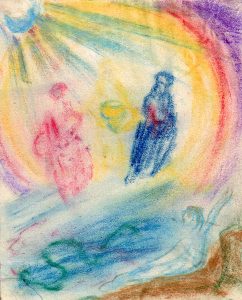
CONCLUSION
We can therefore conclude that the so-called “exercises of the soul” – far from being second-class exercises – are the test-bench for our ability to transform our life in its entirety in accordance with the Spiritual Science path.
Of course, according to the critical directive of ‘love thy neighbour as thyself’ we must begin by loving ourselves, obviously not in a selfish way but in recognition of our spiritual being, and then the closest people – those closer to us.
And who are the people closest to us?
Of course, those with whom the task is often most difficult.
They are our relatives, our friends, our spiritual path companions, and our life partner, if we have one.
This is the most delicate and also the most important part, if we think that the work on the human couple is the deepest meaning of the work by Massimo Scaligero and Mimma.
This is so important and essential that if the dimension of Sacred Love were not realized in the future, if the dimension of the vital Spirit – of Buddhi – were not experienced by a human couple, this would prevent the birth of a higher level of awareness and a direct relationship to the spiritual world for all mankind.
This would produce backwardness in the human evolutionary path as the spiritual forces that still act in this direction, because of the lack of human awareness could even turn into their opposite, becoming an instrument of an obstacle, anti-love forces.
Forces therefore that, directed at conscious will, could well be taken into the hands in the future by Asura beings.
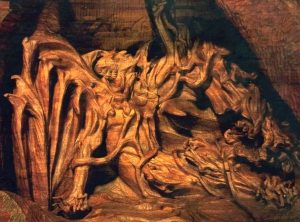
Let us talk about “conscious evil.”
To conclude, I would like to point out that in the last stanza of Rudolf Steiner’s Foundation Stone meditation we can see that in the entreaty for the Christ’s sun-action action on the heart is required before even on the mind.
In those lines, thanks to the warmth given to the heart – even before enlightenment is given to the mind – it is possible to transform – so that it becomes good – what we found with our hearts and want to implement with our minds.
With these words Rudolf Steiner sealed almost a hundred years ago the highest legacy of Anthropos-Sophia, a seed that, planted in the hearts of men, should have constituted the real continuation of his mission in the world.
O Light Divine
O Sun of Christ
Warm thou
Our hearts
Enlighten
Our heads
That good may become
What we
From hearts we would found
What we
From our heads
Direct
With single will.
Piero Cammerinesi
Translation by Mark Willan


